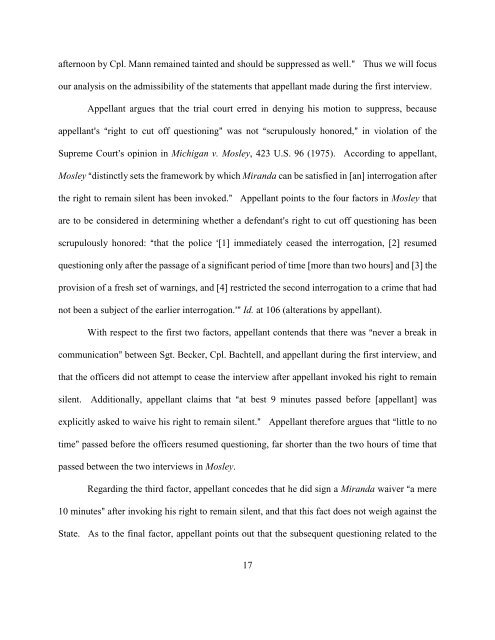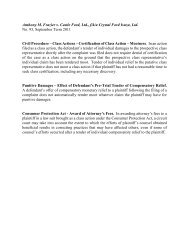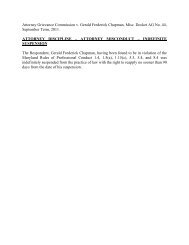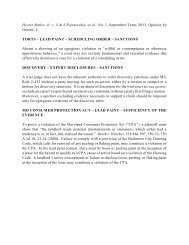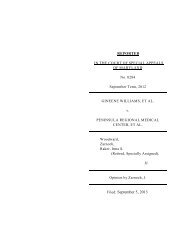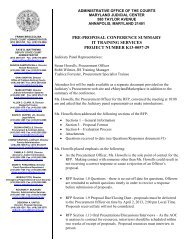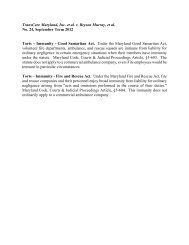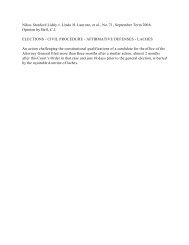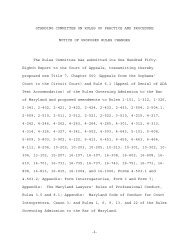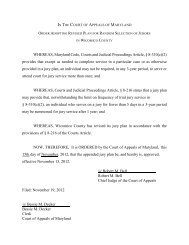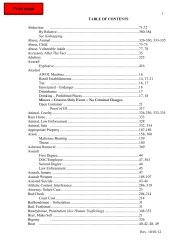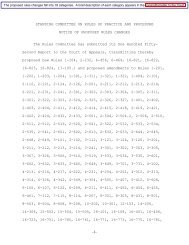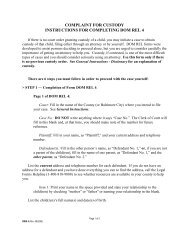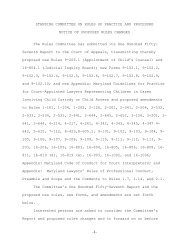2842/09 - Maryland Courts
2842/09 - Maryland Courts
2842/09 - Maryland Courts
You also want an ePaper? Increase the reach of your titles
YUMPU automatically turns print PDFs into web optimized ePapers that Google loves.
afternoon by Cpl. Mann remained tainted and should be suppressed as well.@ Thus we will focus<br />
our analysis on the admissibility of the statements that appellant made during the first interview.<br />
Appellant argues that the trial court erred in denying his motion to suppress, because<br />
appellant=s Aright to cut off questioning@ was not Ascrupulously honored,@ in violation of the<br />
Supreme Court=s opinion in Michigan v. Mosley, 423 U.S. 96 (1975). According to appellant,<br />
Mosley Adistinctly sets the framework by which Miranda can be satisfied in [an] interrogation after<br />
the right to remain silent has been invoked.@ Appellant points to the four factors in Mosley that<br />
are to be considered in determining whether a defendant=s right to cut off questioning has been<br />
scrupulously honored: Athat the police >[1] immediately ceased the interrogation, [2] resumed<br />
questioning only after the passage of a significant period of time [more than two hours] and [3] the<br />
provision of a fresh set of warnings, and [4] restricted the second interrogation to a crime that had<br />
not been a subject of the earlier interrogation.=@ Id. at 106 (alterations by appellant).<br />
With respect to the first two factors, appellant contends that there was Anever a break in<br />
communication@ between Sgt. Becker, Cpl. Bachtell, and appellant during the first interview, and<br />
that the officers did not attempt to cease the interview after appellant invoked his right to remain<br />
silent. Additionally, appellant claims that Aat best 9 minutes passed before [appellant] was<br />
explicitly asked to waive his right to remain silent.@ Appellant therefore argues that Alittle to no<br />
time@ passed before the officers resumed questioning, far shorter than the two hours of time that<br />
passed between the two interviews in Mosley.<br />
Regarding the third factor, appellant concedes that he did sign a Miranda waiver Aa mere<br />
10 minutes@ after invoking his right to remain silent, and that this fact does not weigh against the<br />
State. As to the final factor, appellant points out that the subsequent questioning related to the<br />
17


